Despite nearly 24 inches of snow, below-zero temperatures and raging winds, livestock producers are finding ways to overcome the horrific conditions in western Illinois to provide the best care possible to their animals.
But it’s not been easy on the farmers.
“This weather is going to kill me,” Chad Bell, a pork producer from Viola, Ill., told his followers on social media when the second round of snow hit western Illinois at the end of last week.
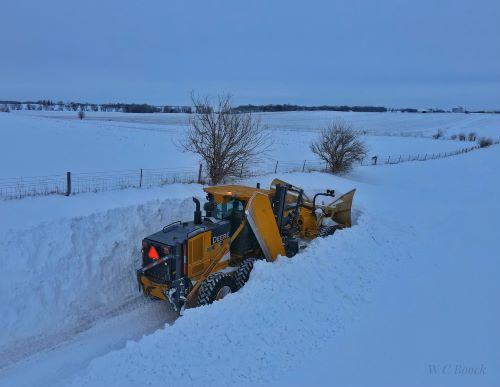
Source: Cole Boock, Sumner Township, Little York, Illinois
Historic drifts have made getting into the barn a challenge in and of itself. Many north-south roads have been impassable and getting access to livestock on pasture has been nearly impossible in some situations. Bell says he had to walk from the highway to his barn for three days to check pigs.
“It took a day to get the loader to run, hauling a battery charger and kerosene to the barn by sled,” Bell adds. “A blown tire stopped what little snow clearing progress I made. It took a bulldozer to open the road and clear my driveway!”
EXTREME WEATHER’S IMPACT ON LIVESTOCK
The cold temperatures continue to exacerbate every little issue, Bell points out. From keeping the outside equipment from freezing up to preventing blowing snow from coming into the feed bin lids to causing flowability issues, Bell says it’s been one thing after another for him as a farmer.
“It’s snowing and blowing, but in the barn it’s 65 degrees – nice and dry – with no drifts. The pigs are definitely enjoying it,” Bell explains. “Being in a heated modern hog facility, they can use their energy to grow instead of simply trying to survive.”
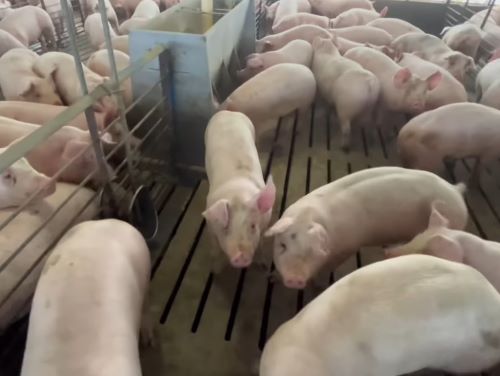
Source: Chad Bell
But for Brent Titus, a sheep producer from Alexis, Ill., that’s exactly what some of his sheep must do right now – survive.
“January is so hard because we are lambing and every available enclosed space is being used to ensure that ewes and lambs stay warm,” Titus says. “Unfortunately for us, that means later bred females and replacements are left on pasture. Wind breaks are about the best we can offer them, and it’s made last week miserable.”
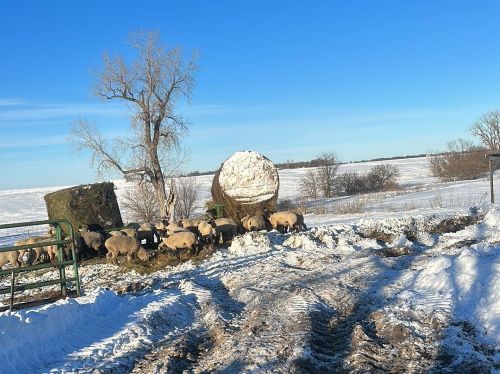
Source: Brent Titus
Although he would like to have covered spaces for every animal during times like this, he says it just isn’t feasible.
“It’s a full-time job tending to livestock during this kind of weather,” Titus says. “Tractors don’t start, skid steers can’t maneuver the drifts, and the freezing cold has resulted in lots of gelled-up diesels. We bust automatic drinkers three to four times a day, even though they are not supposed to freeze. We do the best we can.”
Cattle producer Scott Campbell of Little York started calving when the first snow came through. However, he considers himself lucky despite the challenges he’s faced.
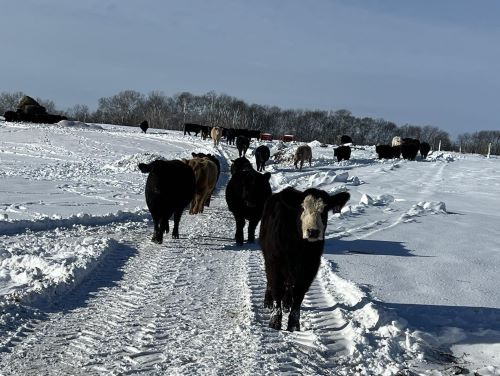
Source: Scott Campbell
“So far, all our calves have been born in the barn. We have enough room right now that the ones we have are under roof,” Campbell says. “They don’t seem to mind the temperatures as much as I do.”
Campbell has been farming for over 20 years and says frozen waterers, pushing snow and keeping a close eye on health are “givens” during this kind of weather. But he’s never had to plow paths in the snow for cattle to get to feed and water like he has in 2024.
PREPARE FOR THE WORST
Staying ahead of the storm is key, Bell explains. On his hog farm, he pays special attention to feed bins, propane and generator fuel levels during bad winter conditions.
“In the event that I can’t get back to the barn for a day or longer, I know the pigs will be fine without me if these three things are in place,” Bell says.
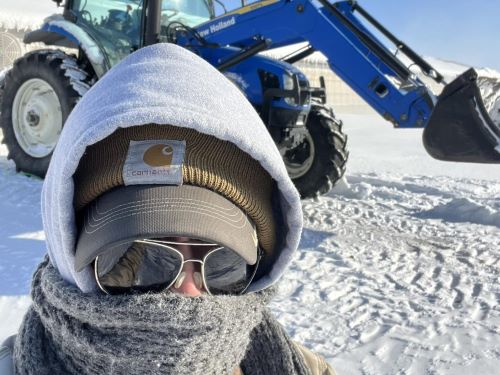
Source: Chad Bell
But that’s exactly what keeps Campbell up at night – the possibility of not being able to get to his calving barn that is 2.5 miles from his house.
“Most years it’s not a concern, but it has been a few times already this year,” Campbell says.
Titus is not a full-time farmer – he serves as a regional sales manager for Atticus LLC. He says it’s an all-hands-on-deck situation when the winter weather strikes.
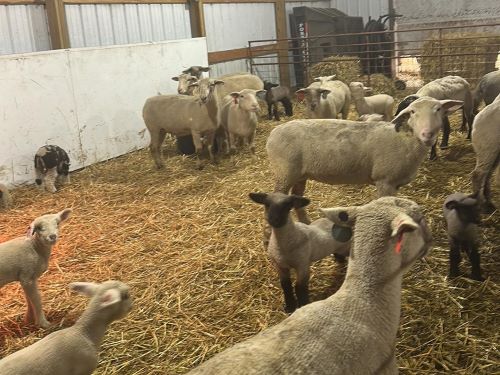
Source: Brent Titus
“My wife is absolutely integral,” Titus says. “She mans the lambing barn so the rest of the crew can do the best to clear paths to feed the places that aren’t under roof. I’m not sure the general public understands just how much time is spent simply feeding every day.”
TECHNOLOGY IS A LIFESAVER
For these three farmers in the Mercer-Warren County area, technology has been incredibly helpful during these extreme weather events.
A year ago, Bell purchased Barn Talk, technology from Barn Tools that allows him to check power, temperature, water and feed levels at the barn at all times from an app on his phone.
“It’s super handy in this weather,” he says. “It can’t pull frozen chunks from my feedline or ensure my generator will start, but I will know right away if I have a problem.”